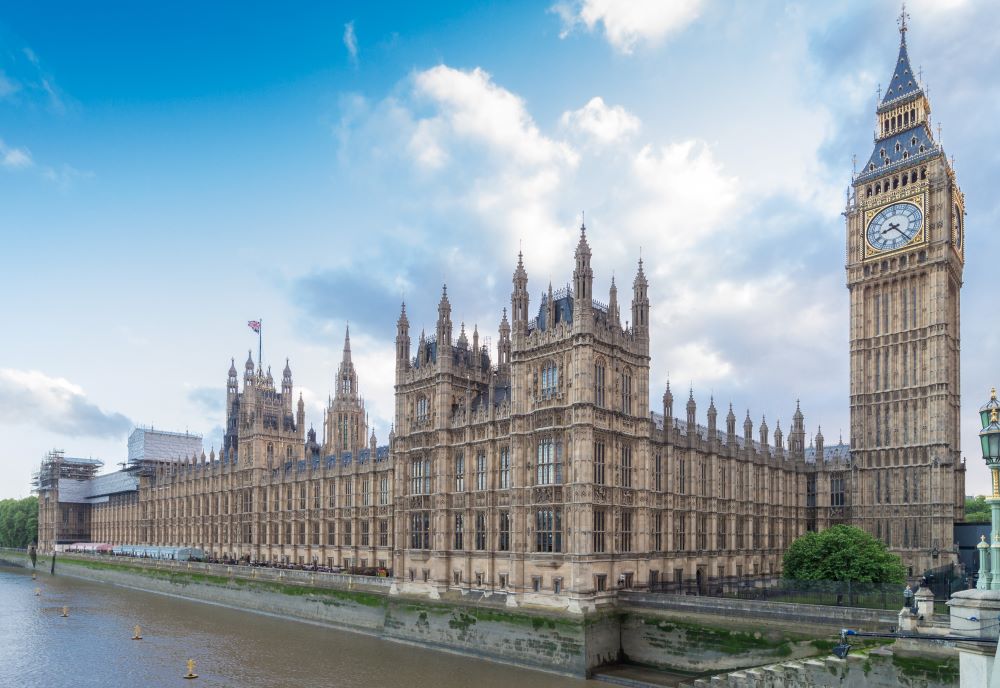
MPs have today (22 March) voted to pass the statutory instrument that will enable the government to implement the ‘Stormont Brake’. Downing Street has said that the vote will be the only one that parliamentarians will get in relation to the Windsor Framework.
The brake will allow politicians in the Northern Irish Assembly to object to EU laws that could otherwise be introduced in the region, as the area is still subject to EU single market rules under the terms of the Northern Ireland Protocol.
A petition of 30 MLAs (Members of the Legislative Assembly) from two or more parties expressing concern about a new EU rule would allow the UK to suspend that law from coming into force in the region. The BBC explains that this suspension would apply within a maximum of four weeks ahead of an independent arbitration with the EU via the Joint Committee which oversees the protocol.
MPs voted in favour of the brake by 515 to 29. Conservative MPs thought to have voted against the deal include former prime ministers Boris Johnson and Liz Truss.
Framework brings prosperity
Chris Heaton-Harris, the Northern Ireland secretary, said the framework would “bring prosperity to Northern Ireland” and that the brake was one of the “most significant changes” that had been negotiated by PM Rishi Sunak in negotiations with the EU.
He said that under the previous implementation of the protocol, EU rules could be applied in the region without Northern Irish politicians’ consent. However, he explained that the Stormont Brake will now allow politicians from all communities in the region to have their say.
The minister said that the brake did not just give MLAs a “consultative role” but gave a “robust power for MLAs to stop the application of amended EU rules”.
Stormont needed
Responding to a question from Colum Eastwood, the leader of the Social Democratic and Labour Party (SDLP), Heaton-Harris explained that this “brake cannot even start to be a thing until Stormont goes back and the executive functions.”
The devolved government in Northern Ireland has been shut down for over a year, under the terms of the Good Friday Agreement’s power sharing arrangements, as the DUP resigned from the executive in protest against the protocol in February 2022.
Opposition support
The shadow Northern Ireland secretary Peter Kyle said the deal represented “real progress” but that the Conservatives had been “distracted by rebellion and infighting” and was relying on Labour support to pass the brake.
He said that “while the deal is not perfect, it is an improvement, so in the interest of Northern Ireland and the rest of the country, we will be voting in favour for it today”.
Kyle also questioned Conservative MPs who had voted in favour of the original protocol when it originally went to the House of Commons, but who had gone on to object to the rules implemented in Northern Ireland as a result of it.
DUP concerns
Sir Jeffrey Donaldson, the leader of the Democratic Unionist Party (DUP), had already confirmed that his party would vote against the government on the brake.
"There remain for us concerns, for example, the Stormont Brake deals with the application of EU law in Northern Ireland, but it doesn't address how are we dealing with change to UK law, which could impact on NI's ability to trade within the United Kingdom itself," he told BBC News NI.
He said he would continue to work with the PM to address the party’s concerns with the deal, particularly around EU standards and rules continuing to apply to goods bound only for Northern Ireland.
ERG follows
The European Research Group (ERG) of hardline Brexit-supporting Conservative MPs this week published a critical report examining the brake, as well as the wider framework. Legal experts advised the ERG that EU law would “still be supreme” in the region.
ERG chairman, Mark Francois, labelled the Stormont Brake “practically useless”, the Guardian reports.
Speaking in Parliament, Francois questioned whether the brake was actually a veto, given that independent arbitration didn’t necessarily lead to new EU laws being permanently blocked in the region.
Heaton-Harris refuted Francois’ argument, saying it was a veto, had an arbitration process and that the European Court of Justice (ECJ) would not be involved in any dispute.
Peter Bone, the former deputy Commons leader, told the Guardian earlier this week that he was “very unhappy” that the vote on the brake was being treated as MPs’ one chance to have a say on the wider framework.
Declarations question
DUP MP Ian Paisley asked Heaton-Harris if customs declarations would continue to be required for British goods entering Northern Ireland.
Heaton-Harris explained that a trusted trader service would be introduced, with 21 fields of information required for lorries carrying goods into Northern Ireland. He said these fields will be “mostly auto-populated” and that no certificates would be required by vets or other third parties.
Windsor Framework
Sunak and European Commission vice president Ursula von der Leyen agreed the Windsor Framework in February 2023.
The framework aims to ease trade friction by implementing a new ‘green’ and ‘red lane’ model on goods moving from Great Britain to Northern Ireland, introducing reduced data requirements for goods bound only for Northern Ireland.
British goods moving through the region into the Republic of Ireland – through a ‘red lane’ – will still be required to comply with normal EU customs rules.
To read more about how the Windsor Framework will work in practice, read our 10 key takeaways here.



